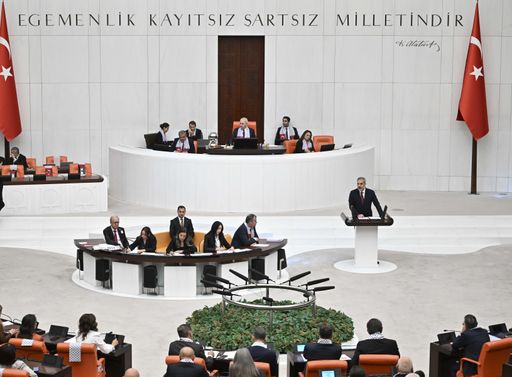Thirteen countries, including Türkiye, Bolivia, Colombia, and South Africa, pledged to implement six measures at the Hague Group’s meeting in July to cut ties with Israel over its atrocities in Palestine.
The Bogota Emergency Conference on Palestine brought together more than 30 countries across Latin America, Africa, Asia, Europe, and the Middle East.
They set September 20 –timed with the opening of the 80th UN General Assembly on Tuesday– as the target for additional states to join, while consultations with capitals continue worldwide.
The measures include suspending military trade with Israel, blocking arms transit, reviewing public contracts to reduce financial links, restricting dual-use goods, and denying docking rights to Israeli vessels carrying fuel, weapons, or other prohibited cargo.
Ankara was the first to sign and take such measures.
In doing so, it coupled its endorsement with new restrictions on Israeli-linked shipping, making clear that the decision goes beyond rhetoric.
“We share the Hague Group’s main goal to increase international cooperation against Israel’s defiance of international law,” the Turkish Foreign Ministry sources tell TRT World.
“Those responsible for the genocide in Gaza must be held accountable.”

Sanctions in practice
Before the conference in Bogota, Türkiye had fully suspended its roughly $9.5 billion bilateral trade with Israel.
Last month, Ankara further reinforced this stance, barring Israeli-owned or affiliated ships from Turkish ports.
Port authorities now require shipping agents to certify that vessels have no Israeli ties and are not transporting prohibited cargo such as weapons or hazardous materials.
Turkish-flagged vessels are also banned from docking in Israel.
“Similarly, aero planes carrying weapons and ammunition to Israel are not permitted to pass through Turkish airspace for the same purpose,” the ministry sources say.
“We have been calling on the international community to consider the imposition of sanctions to force Israel to abide by international law and international humanitarian law. Mere words of condemnation are not enough. Concrete action is needed.”
Türkiye’s move drew praise from the Hague Group, which calls on nations to follow its lead ahead of the UN General Assembly.
“The key challenges for the Hague Group – and really, for any nation seeking to uphold international law – is the endorsement of impunity by powerful nations, the destruction of our international legal institutions, and the punishment meted out to countries that seek to hold Israel accountable,” Varsha Gandikota-Nellutla, Executive Secretary of The Hague Group told TRT World in February.
South African Foreign Minister Ronald Lamola also welcomed Türkiye’s decision, saying it strengthens the collective fight against injustice and impunity.
Türkiye has emphasised that its role goes beyond trade and transport restrictions.
“We will keep up with our efforts in the legal domain until the perpetrators of the genocide are held to account,” the Turkish MFA sources added.
“We uphold our call on the international community, particularly the UN Security Council, to take coercive measures to halt Israel’s aggression in the Occupied Palestinian Territory.”
Beyond the Hague Group, Türkiye is active in the OIC-LAS Gaza Contact Group and the Global Alliance for the Two-State Solution. Ankara has pressed for broader recognition of Palestinian statehood and continues to call for sanctions against Israel through multilateral bodies.
“In the face of genocidal Israeli aggression and annexation policies, more countries declared their intention to recognise the State of Palestine,” the ministry sources say.
“We encourage the international community to do anything they can to end this injustice and genocide.”





















